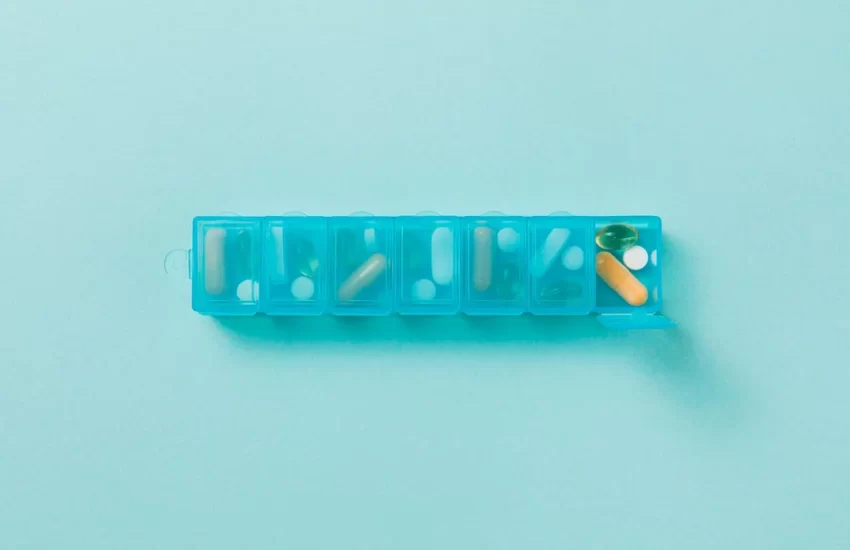150 mg Lyrica (pregabalin) and gabapentin are widely prescribed medications that share similarities in treating nerve-related conditions, but they differ in potency and pharmacodynamics. Patients switching between these medications often need clarity on equivalent dosing to ensure effective symptom management without adverse effects. This article explores the approximate equivalence between 150 mg of Lyrica and gabapentin, along with essential considerations during the transition.
Overview of Lyrica and Gabapentin
Lyrica (Pregabalin)
150 mg Lyrica is a newer-generation anticonvulsant and neuropathic pain medication. Its superior bioavailability and rapid absorption make it a more potent option than gabapentin. Key characteristics include:
- Uses: Treats diabetic neuropathy, postherpetic neuralgia, fibromyalgia, and epilepsy. It is also effective for generalized anxiety disorder (off-label).
- Mechanism of Action: Modulates calcium channels in the central nervous system to reduce nerve signal excitability.
- Dosage Range: Typically prescribed between 75 mg to 300 mg per day, split into two doses.
Gabapentin
Gabapentin is an older anticonvulsant that is widely used for neuropathic pain and seizures. Its cost-effectiveness and extensive research history make it a popular choice. However, its absorption is less predictable, especially at higher doses. Key characteristics include:
- Uses: Approved for epilepsy and postherpetic neuralgia; frequently used off-label for anxiety and migraines.
- Mechanism of Action: Similar to Lyrica 150 mg, it binds to calcium channels, reducing nerve signal transmission.
- Dosage Range: Commonly prescribed between 300 mg to 3600 mg per day, divided into three doses.
Dose Conversion: 150 mg Lyrica to Gabapentin
The general consensus is that 150 mg of Lyrica is approximately equivalent to 600–900 mg of gabapentin. This conversion ratio is based on clinical studies and pharmacological comparisons. The exact equivalent dose depends on factors like:
- Patient’s Weight and Age: Individual physiology can influence how each medication is metabolized.
- Condition Being Treated: For some conditions, like epilepsy, higher doses of gabapentin may be required.
- Tolerability and Response: Patients may respond differently to each drug due to variations in potency and absorption.
Practical Conversion Example
- A patient currently taking 150 mg of Lyrica twice daily may be transitioned to 600 mg of gabapentin three times daily, allowing for a total daily dose of 1800 mg.
How Lyrica and Gabapentin Compare in Absorption and Potency
Bioavailability Differences
- Lyrica: Bioavailability exceeds 90% at all doses, meaning nearly all of the drug is absorbed into the bloodstream, regardless of the amount taken.
- Gabapentin: Bioavailability decreases with higher doses; for example, at a 900 mg dose, absorption may drop to 27–60%.
Potency and Efficacy
Lyrica 150 mg is approximately 2–3 times more potent than gabapentin. This means that lower doses of Lyrica achieve the same therapeutic effects as higher doses of gabapentin, which is why the conversion ratio leans towards 600–900 mg gabapentin for every 150 mg of Lyrica.
Important Considerations When Switching Medications
1. Transitioning Safely
Switching from Lyrica to gabapentin (or vice versa) should be done gradually. Abrupt cessation of Lyrica 150 mg can lead to withdrawal symptoms such as anxiety, nausea, and rebound pain. A tapering schedule allows the body to adjust to the new medication while maintaining symptom control.
2. Monitoring for Side Effects
- Lyrica: May cause dizziness, weight gain, and blurred vision.
- Gabapentin: Commonly associated with drowsiness, fatigue, and gastrointestinal discomfort.
Patients transitioning from Lyrica to gabapentin may initially experience mild side effects due to differences in pharmacokinetics.
3. Alternative Dosing Schedules
Given gabapentin’s shorter half-life, it often requires three daily doses compared to Lyrica’s twice-daily dosing. Patients should follow their healthcare provider’s recommendations to ensure steady therapeutic levels.
Clinical Scenarios and Decision-Making
When to Choose Lyrica Over Gabapentin
- Faster Relief: Lyrica’s rapid onset makes it more effective for acute symptoms.
- Fewer Doses: Its twice-daily dosing is convenient for long-term management.
- Consistent Absorption: Ideal for patients with variable drug metabolism.
When to Choose Gabapentin Over Lyrica
- Cost-Effective Option: Gabapentin is more affordable, making it accessible for patients on a budget.
- Mild to Moderate Symptoms: Suitable for conditions that do not require Lyrica’s potency.
- Off-Label Uses: Gabapentin is widely used for conditions like anxiety and migraines.
Tips for Patients Transitioning Between Medications
- Communicate with Your Healthcare Provider
Always inform your doctor about any side effects or concerns during the transition. Dosages may need adjustment to optimize treatment. - Stick to the Prescribed Tapering Plan
Tapering ensures a smoother transition and minimizes withdrawal risks from Lyrica 150 mg or adverse reactions to gabapentin. - Adopt Supportive Measures
Lifestyle changes such as a healthy diet, regular exercise, and stress management can enhance the effectiveness of both medications. - Monitor Symptoms Closely
Track the severity of your symptoms and report any rebound pain or seizures to your doctor immediately.
Conclusion
Converting 150 mg of Lyrica to gabapentin requires careful consideration, as the equivalent dose typically ranges between 600 mg and 900 mg. However, individual factors like the condition being treated, patient response, and tolerability can influence the conversion process. Always consult a healthcare provider to create a personalized plan for switching medications safely and effectively.
For genuine medications like Lyrica and gabapentin, visit Safe4cure.com, your trusted source for quality healthcare products with 24 hour express delivery across the UK.
